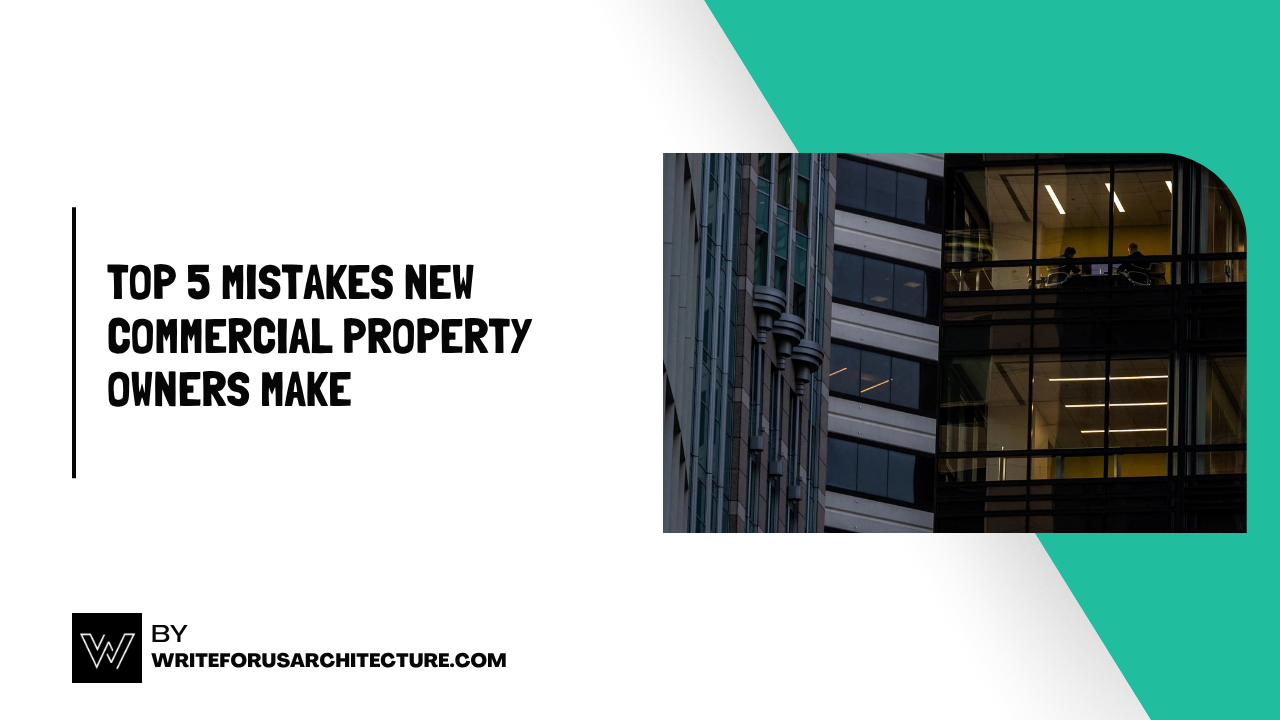Owning a commercial property can be a powerful investment – one that generates steady income, builds equity and provides long-term security. But for new owners, managing a commercial building isn’t as simple as collecting rent and watching profits grow. From legal obligations to maintenance costs, there are countless details that can trip you up if you’re not prepared.
Here are five of the most common mistakes new commercial property owners make and how to avoid them.
1. Skipping the Building Survey
It might be tempting to save money by skipping a professional survey, especially if the property looks sound. But this is one of the biggest and most expensive mistakes a new owner can make. Behind the walls could be hidden defects like roof leaks, poor drainage, or structural issues that aren’t visible during a quick viewing.
A detailed inspection by a commercial building surveyor identifies these risks early, before they become financial headaches. From dilapidations to defect diagnosis, surveyors provide clear insights into a property’s true condition, giving owners the confidence to make informed decisions. Spending a little upfront can save thousands in future repairs and disputes.
“A building might look like a sound investment from the outside, but only a proper survey reveals what’s really going on beneath the surface,” according to Ivy Lees Building Consultancy. “Too often, we see investors discover costly structural or compliance issues long after completion — problems that could have been prevented with the right advice at the right time. A thorough commercial building survey isn’t just about spotting defects; it’s about giving you the confidence and clarity to invest wisely and protect your capital for the long term.”
2. Underestimating Maintenance Costs
Many new owners misjudge how much it costs to maintain a commercial building. Routine maintenance, safety checks and compliance upgrades can quickly add up. Neglecting these responsibilities not only affects the building’s condition but can also impact tenant satisfaction and rental income.
The smartest investors plan for ongoing upkeep from day one. A maintenance schedule, based on surveyor recommendations, ensures the building remains safe, compliant and attractive to tenants. Treating maintenance as a planned investment rather than an unexpected cost helps preserve the property’s long-term value.
3. Overlooking Legal and Compliance Responsibilities
Owning a commercial property comes with a web of legal duties. Fire safety, asbestos management, accessibility, energy performance – all these regulations fall under the owner’s responsibility. Failure to comply can lead to serious fines or even invalidate insurance coverage.
Many new owners assume these obligations are handled by tenants or managing agents, but that’s not always the case. A qualified surveyor or property consultant can help ensure the building meets every legal requirement, giving you peace of mind and protecting your investment from unnecessary risk.
4. Neglecting Tenant Relationships
Commercial property ownership isn’t just about bricks and mortar; it’s also about people. A strained relationship with tenants can lead to late payments, lease disputes or unexpected vacancies. Communication is key. Responding promptly to issues, keeping the building in good condition and maintaining transparency builds trust – and stable, long-term tenancies.
Working proactively with tenants also helps identify potential problems early, such as maintenance concerns or changes in their space requirements. A well-managed relationship can turn tenants into advocates who look after your property as if it were their own.
5. Failing to Think Long-Term
Many new owners focus on immediate rental yield and forget about the bigger picture. Successful commercial property ownership requires strategic thinking – considering how the building will perform over the next five, ten or twenty years. That means planning for refurbishment, sustainability improvements, and shifts in market demand.
A professional advisor, such as a commercial building surveyor, can help owners take a holistic view of their property. From feasibility studies to refurbishment guidance, surveyors provide the insight needed to future-proof investments and maintain value over time.
Building Smarter, Not Harder
Owning a commercial property is both a privilege and a responsibility. The most successful owners are those who approach it with preparation, curiosity and the right professional support. By avoiding these five mistakes – and surrounding yourself with experts who understand the technical, legal and commercial sides of property ownership – you’ll not only protect your investment but help it thrive for years to come.
Also Read:

